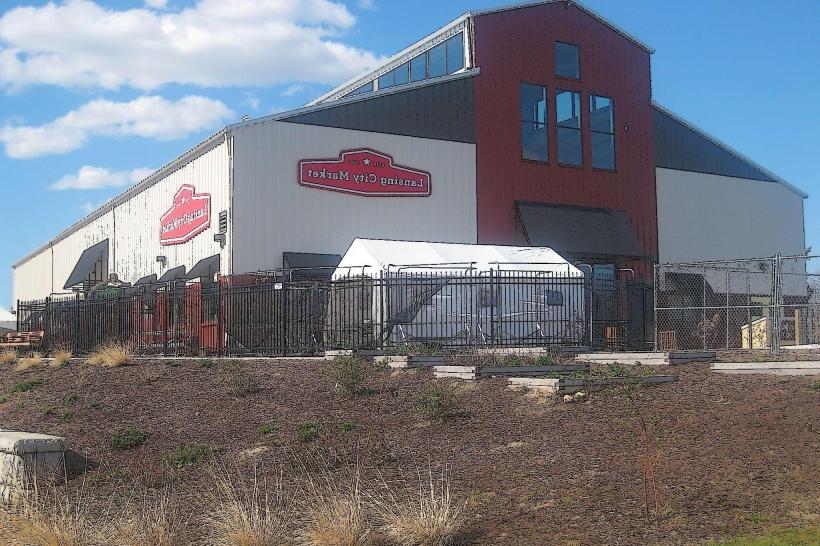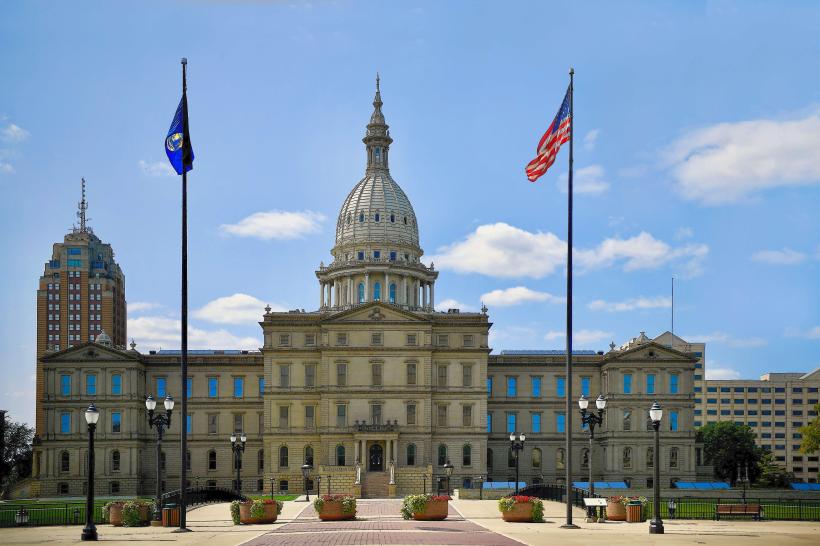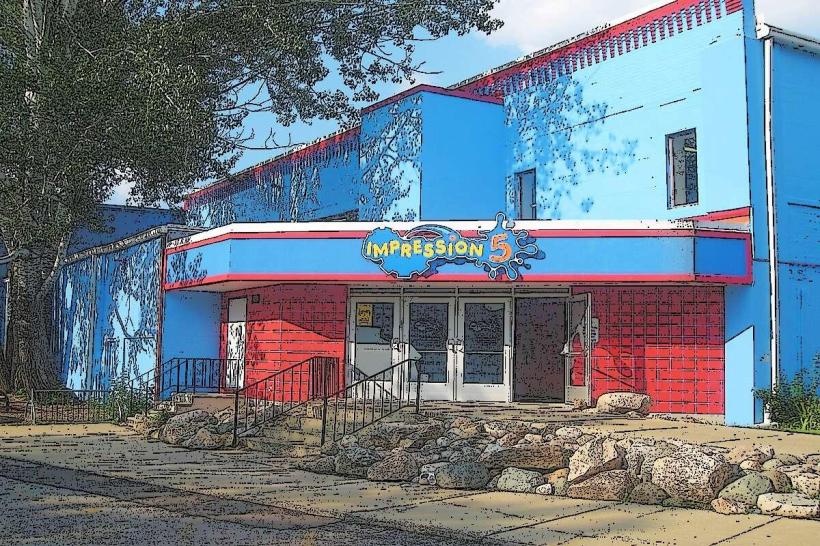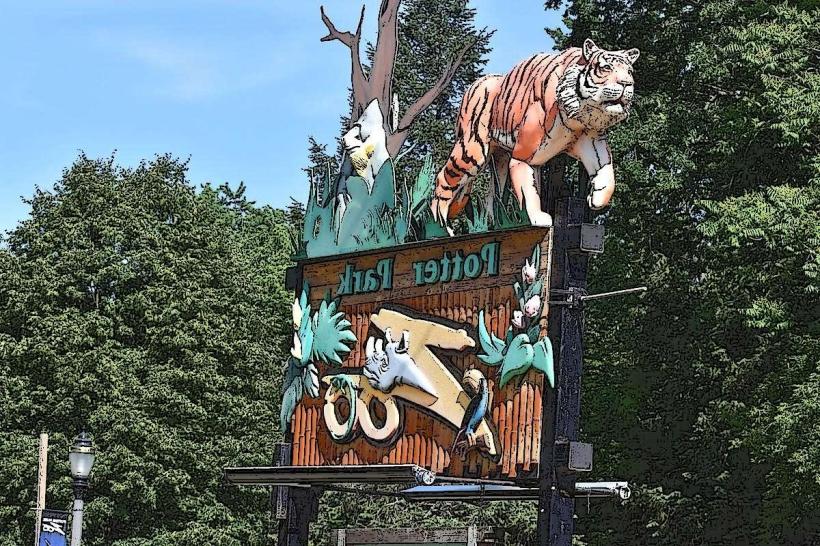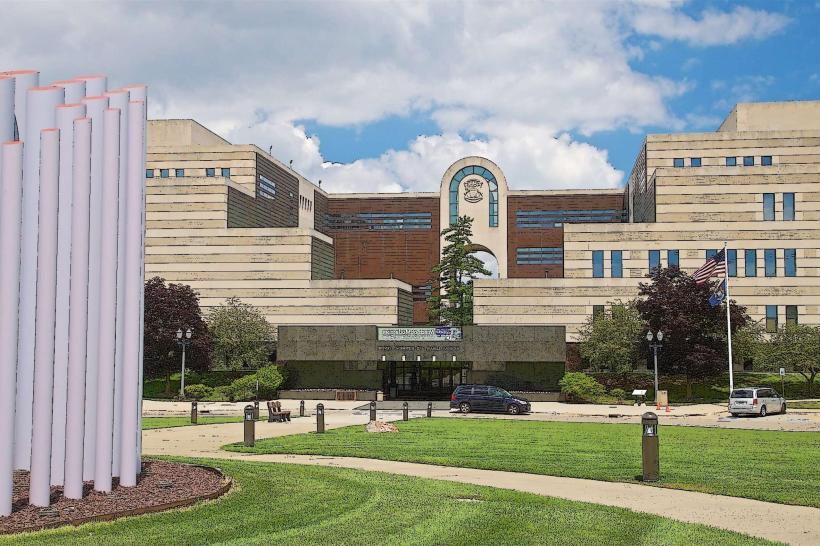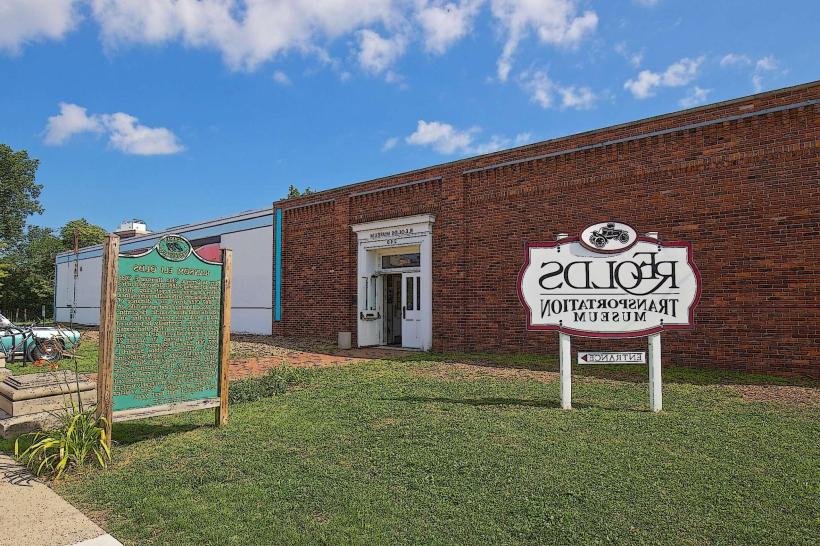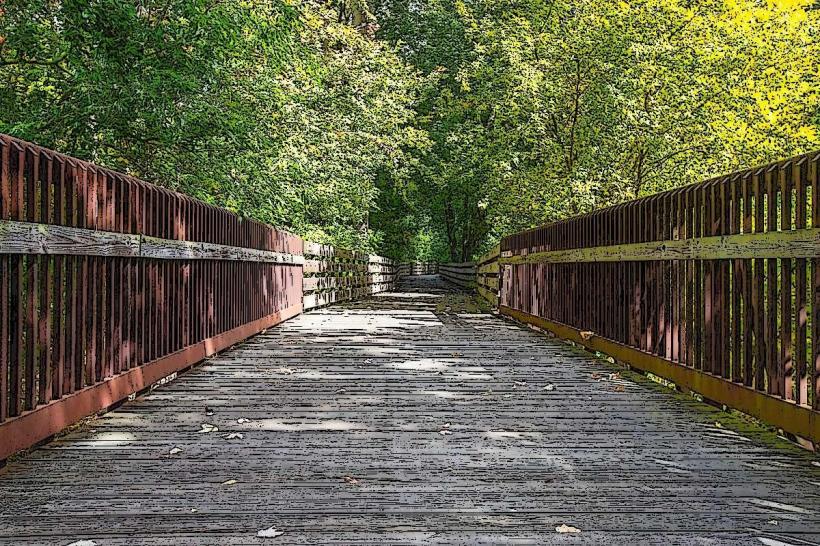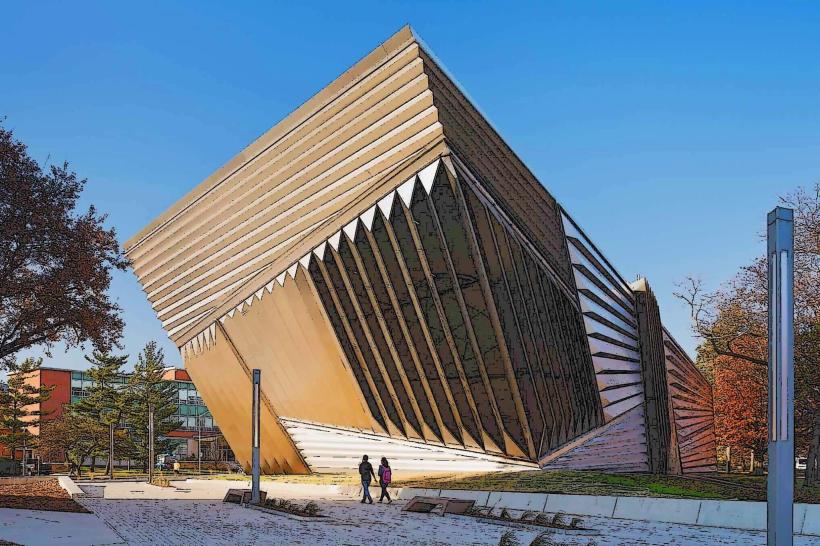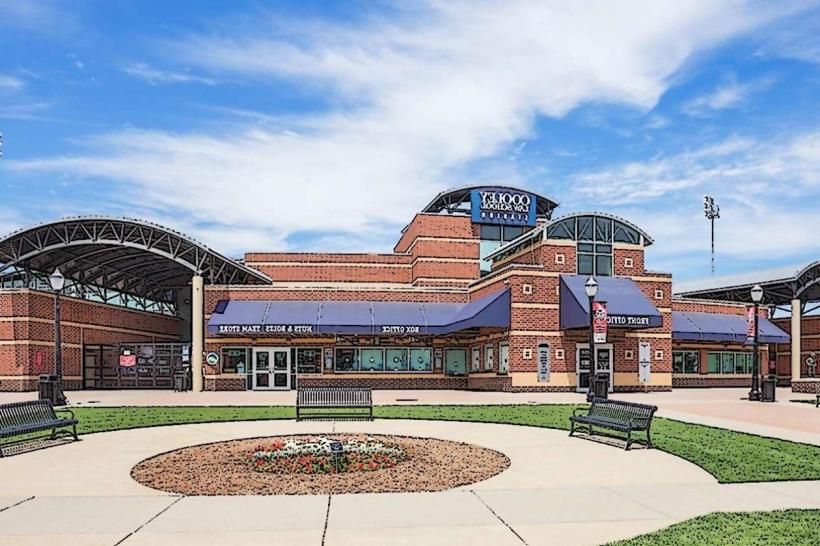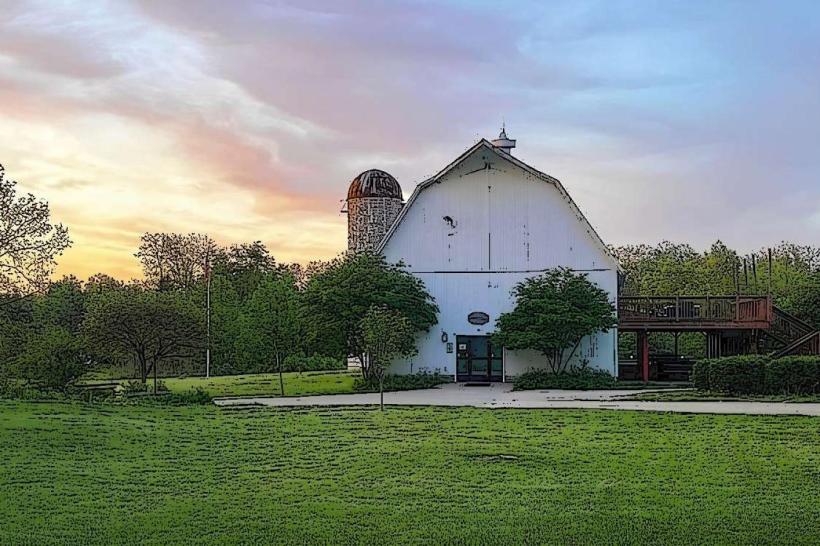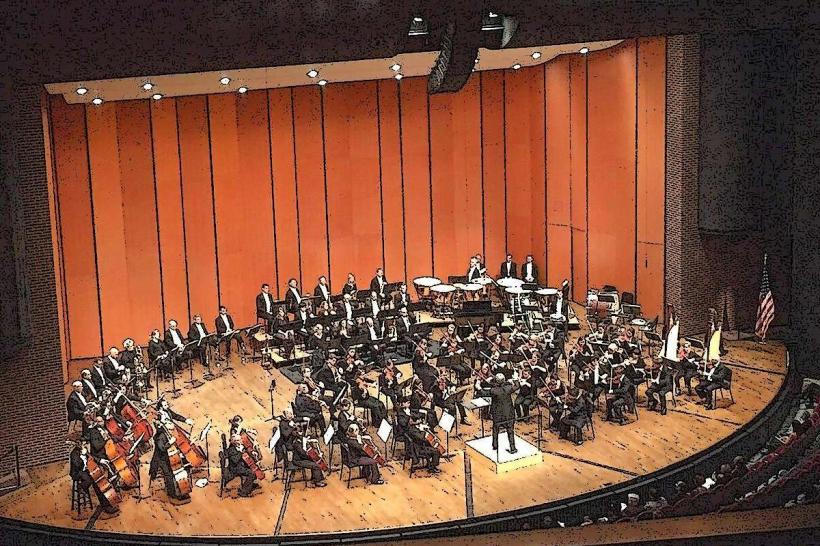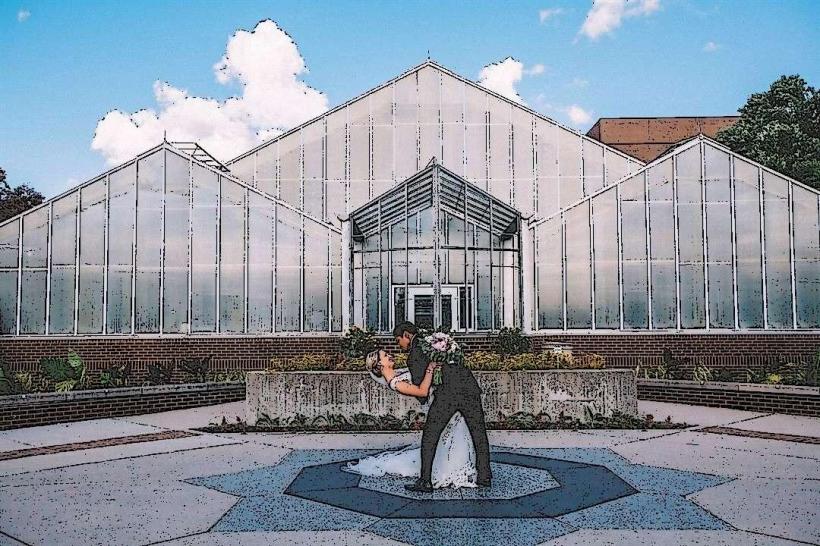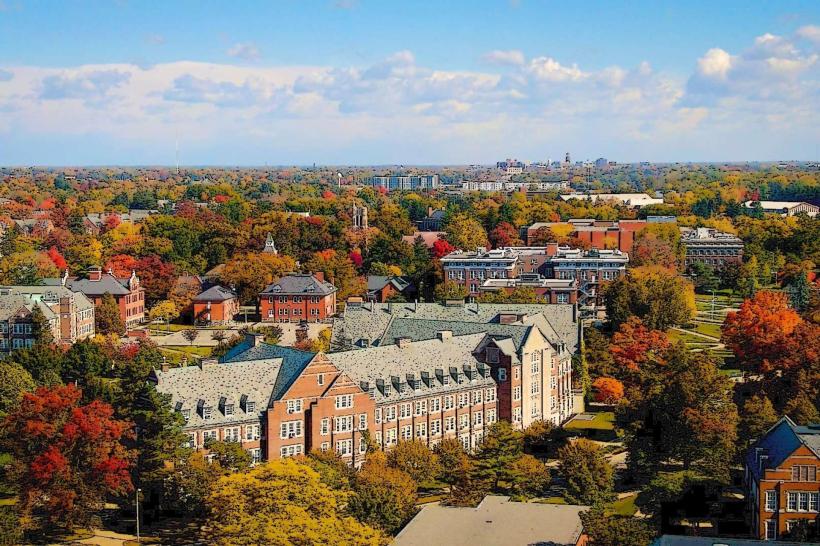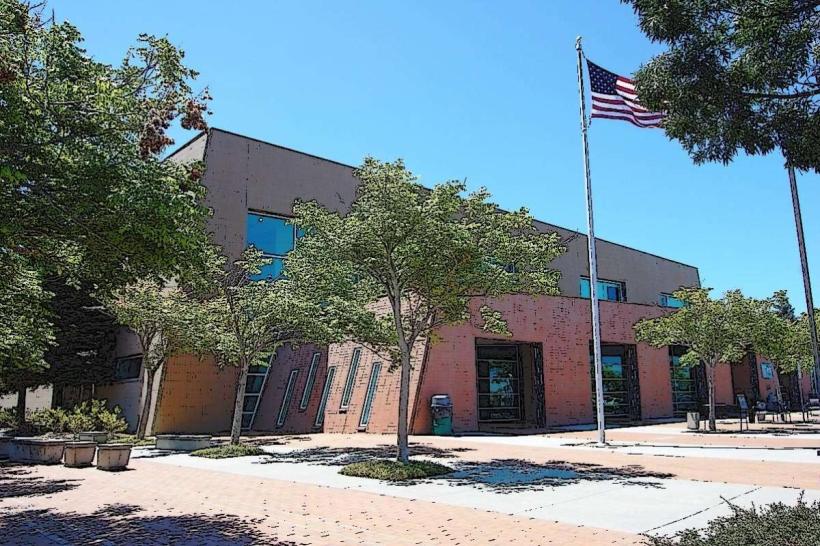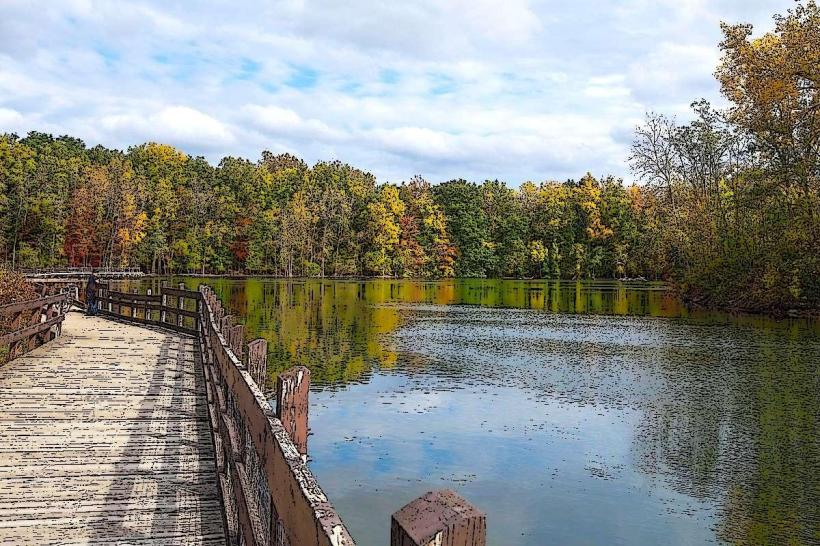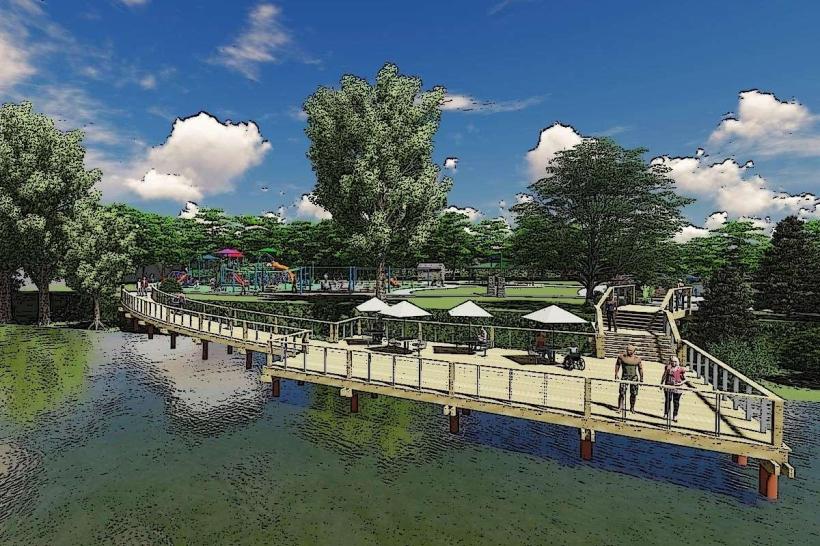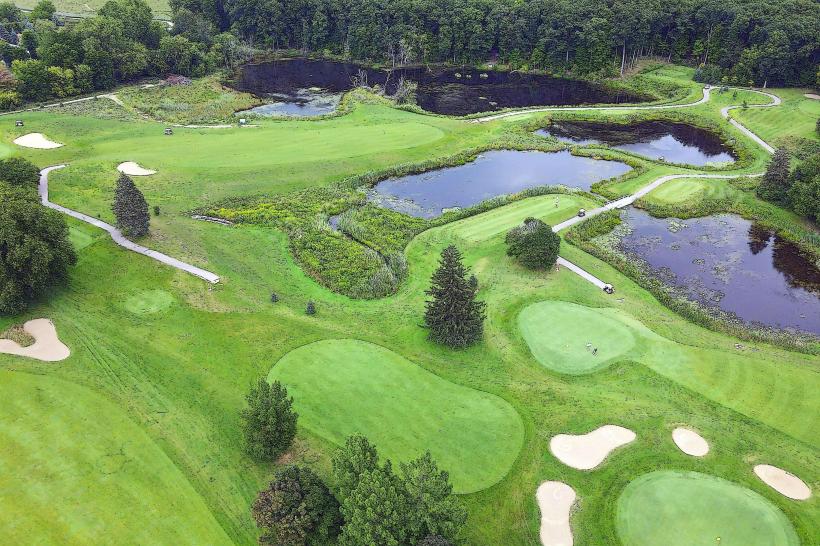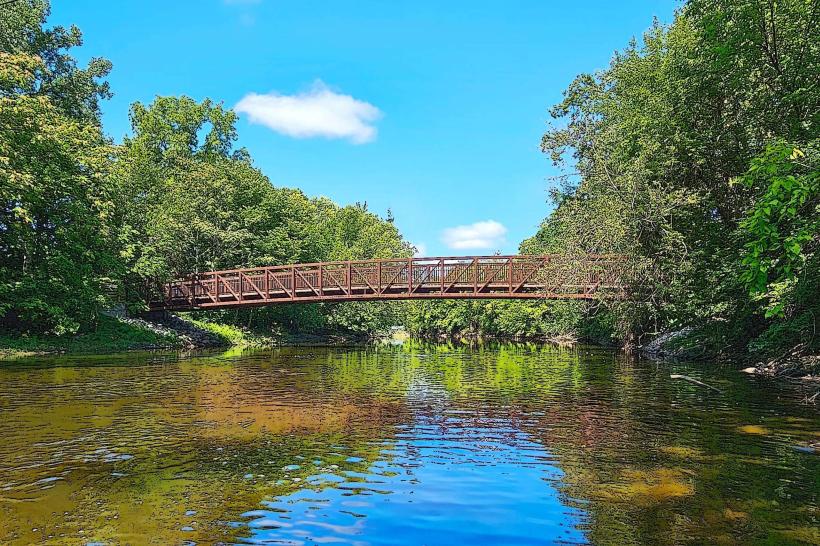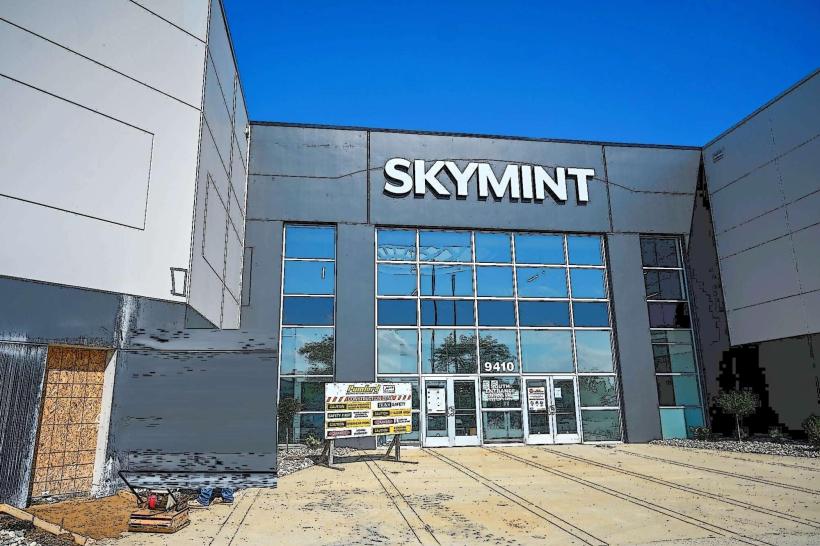Information
Landmark: Fenner Nature CenterCity: Lansing
Country: USA Michigan
Continent: North America
Fenner Nature Center, Lansing, USA Michigan, North America
The Fenner Nature Center, located in Lansing, Michigan, is a 134-acre environmental education facility dedicated to fostering a deep connection between people and the natural world. Managed by the nonprofit Fenner Conservancy, it functions as both a sanctuary for native plants and wildlife and a vibrant community resource focused on conservation education and outdoor recreation.
Historical Background and Founding
The land that Fenner Nature Center occupies was originally part of the Springdale Farm, owned in the early 20th century by J.M. Turner, a prominent Lansing figure. In 1952, the City of Lansing purchased a portion of this land intending to develop a public park and arboretum. Over the following decades, the site transformed into a nature center, largely thanks to the dedication of Carl G. Fenner, a botanist, environmentalist, and advocate for natural education in the region. In recognition of his leadership and vision, the center was named after him.
Throughout the late 20th century, Fenner Nature Center expanded both its physical footprint and its mission, introducing trails, educational programs, and facilities that would enable broader public engagement with nature. Renovations in the 1990s, including the construction of new ponds and accessible trail improvements, helped solidify the center’s role as a leading environmental education site in Mid-Michigan.
Natural Environment and Habitat Diversity
Fenner Nature Center spans a variety of natural habitats, making it an ecological microcosm for the region’s flora and fauna. The landscape includes:
Glacial Eskers: These winding ridges formed by ancient glaciers provide unique topography and soil conditions supporting diverse plant communities.
Sugar Maple Groves (Sugarbush): A stand of mature sugar maples that is used for educational demonstrations about the traditional practice of maple syrup tapping.
Prairie Restorations: Carefully managed grassland areas where native prairie species have been replanted to preserve biodiversity and educate visitors on this once-common ecosystem.
Wetlands and Ponds: These aquatic areas support amphibians, waterfowl, and numerous insect species, playing critical roles in maintaining ecological balance.
Trails and Accessibility
Fenner offers more than four miles of trails that wind through the various habitats, encouraging immersive experiences in nature. The trail system includes:
Paved Loops: Two accessible, paved loops enable visitors of all mobility levels to explore the center comfortably.
Sensory Trail: Designed to engage all five senses, this trail provides an inclusive experience for visitors, including those with disabilities, encouraging tactile, auditory, and olfactory interactions with the environment.
Story Trail: An innovative outdoor reading experience where pages of children’s books are displayed along a trail, combining literacy promotion with outdoor adventure.
These trails enable year-round use, with clear signage and seating areas, supporting activities like bird watching, photography, hiking, and peaceful contemplation.
Facilities: Visitor Center and Davis Nature Pavilion
The Visitor Center is the heart of Fenner’s educational outreach. It houses:
Live Animal Exhibits: Featuring native Michigan reptiles, amphibians, and other small wildlife to educate visitors about local biodiversity.
Interactive Displays: Hands-on exhibits designed to engage children and adults alike in topics such as ecology, conservation, and the life cycles of local species.
Wildlife Viewing Areas: Large windows and outdoor observation spots allow guests to quietly watch deer, wild turkeys, songbirds, and other creatures in their natural habitat.
Adjacent to the Visitor Center is the Davis Nature Pavilion, a modern, year-round facility with:
Multipurpose Event Space: Used for community programs, art exhibitions, workshops, and private rentals such as weddings and meetings.
Panoramic Prairie Views: Floor-to-ceiling windows overlook restored prairie areas, connecting indoor activities with the surrounding landscape.
Accessibility Features: The pavilion is fully ADA compliant, supporting inclusive participation in Fenner’s events.
Educational Programs and Community Engagement
Fenner Nature Center’s core mission revolves around environmental education. It offers a wide array of programs designed to serve diverse audiences:
Youth Camps: Summer camps that immerse children in hands-on nature exploration, teaching skills from wildlife tracking to plant identification.
School Field Trips: Tailored educational visits aligned with Michigan’s curriculum standards, allowing students to learn science and ecology outdoors.
Scout and Community Group Programs: Specialized activities designed to fulfill badge requirements and promote stewardship values.
Family and Public Events: Regularly scheduled events such as guided nature walks, storytelling sessions, and citizen science projects.
The center’s annual signature events include:
Maple Syrup Festival: Celebrates the seasonal tradition of maple sugaring with demonstrations, tastings, and historical storytelling.
Earth Day Extravaganza: A large community gathering focused on sustainability, environmental advocacy, and eco-friendly activities.
Apple Butter Festival: Highlights regional heritage through food preparation, crafts, and live entertainment.
Conservation and Stewardship
Fenner actively participates in habitat restoration and conservation initiatives, including:
Managing invasive species to protect native biodiversity.
Restoring prairie and wetland ecosystems.
Monitoring local wildlife populations through citizen science partnerships.
These efforts are supported by volunteers, community members, and environmental organizations, fostering a sense of shared responsibility for natural resource preservation.
Visitor Information and Accessibility
Location: 2020 E. Mount Hope Avenue, Lansing, Michigan.
Hours:
Visitor Center: Tuesday through Friday, noon to 6 p.m.; Saturday and Sunday, 9 a.m. to 3 p.m.
Trails: Open daily from dawn to dusk.
Admission: Free to the public, though donations are welcomed to support maintenance and programming.
Facilities: Include restrooms, picnic areas, parking, and bike racks. The site is accessible for visitors with disabilities, including paved trails and accessible buildings.
Summary
Fenner Nature Center stands as a vital green space in an urban setting, balancing the preservation of Michigan’s native ecosystems with innovative education and community engagement. It invites visitors of all ages to explore, learn, and develop a lifelong appreciation for the natural world through its diverse habitats, interactive programs, and welcoming facilities. Through the vision of its founders and ongoing stewardship by the Fenner Conservancy, the center continues to be a cornerstone for environmental awareness and outdoor recreation in Lansing and beyond.

